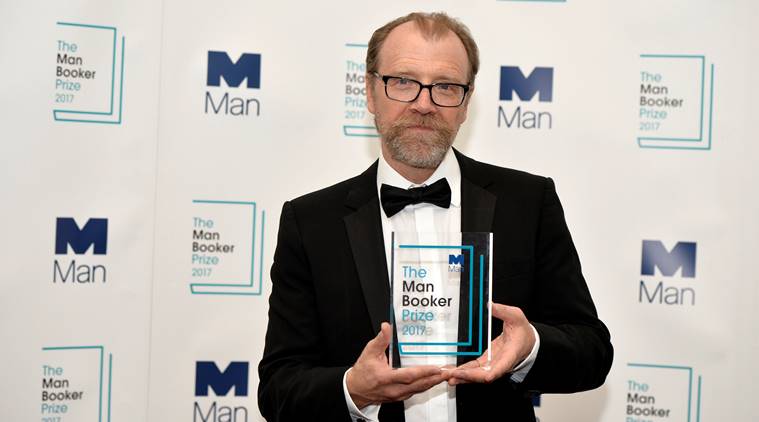Booker Prize winner was once decided by coin toss
The Booker Prize was apparently once simply decided by flipping a coin. According to a report in The Telegraph, David Storey won the prize for his novel Saville in 1976 by a stroke of luck.

George Saunders, author of ‘Lincoln in the Bardo’, poses for photographers after winning the Man Booker Prize for Fiction 2017 in London, Britain, October 17, 2017. (Source: Reuters)
One of the most celebrated literary awards, the winner of The Booker Prize was apparently once decided simply by flipping a coin. According to a report in The Telegraph,David Storey won the prize for his novel Saville in 1976 by a stroke of luck after a three-judge panel failed to come to a decision. This information was revealed by the new archive regarding the prize’s history.
According to the same report, Telegraph critic Francis King and author Walter Allen were confused between Storey’s work and another novel. Prime Minister Harold Wilson’s wife Mary Wilson was supposed to take the call. But she backed out as, according to prize’s former administrator Martyn Goff, the amount of sex in that year’s novels put her off.
“They could not agree, and she didn’t want a vote. We got to a total stalemate. Eventually, one of the other two judges said… ‘The only thing we can do is–’ (and this has never been revealed before) ‘–is to toss for it.’ So they spun a coin, and that was the winner,” Goff said.
The Booker Prize have had its share of controversies. In 1971, journalist Malcolm Muggeridge had quit the judging panel after being miffed for the same reason as Wilson. When poet Philip Larkin chaired the panel in 1977 he had threatened to jump out of a window if Paul Scott’s Staying On didn’t win – and succeeded in convincing the other judges. The novel did win the prize that year.
These are but some of the many anecdotes and controversies that have surrounded the prize ever since its inception.






















No hay comentarios:
Publicar un comentario